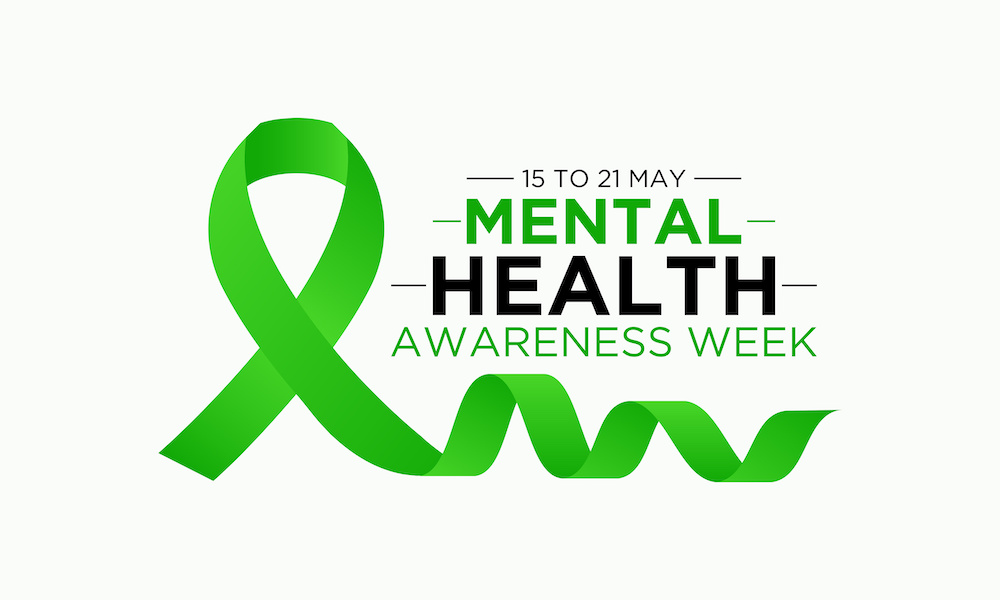This week is Mental Health Awareness Week and this year’s theme is anxiety.
It’s fair to say that most of us will have experienced anxiety at some point in our lives. It’s a normal emotion to experience, which at everyday levels can be helpful. It heightens our awareness and pushes us to focus, perhaps priming us for an interview or helping us to avoid a risky situation.
But if we don’t address the various causes of long-term anxiety, or take steps to reduce it, the more likely we are to reach a point where this emotion seriously impacts our lives, and this is when we may have to take time off work. Surprisingly, according to NHS Digital, mental ill health accounts for over 20 per cent of sickness absence in the NHS.
Thanks to initiatives like Mental Health Awareness Week, the stigma surrounding mental ill health is slowly disappearing. We’re learning to talk about, and take care of, our mental wellbeing. And in the same way that maintaining our physical health needs focus, time and conscious choices, so does our mental health. In the workplace, we need to be able to understand the causes and symptoms of anxiety, and work to create a culture where people feel supported and comfortable to talk.
Managing anxiety in general practice can feel like an uphill battle. Just when you feel like you’re on top of things, another challenge comes along. As practice managers you can become burdened with the weight of the practice and the issues within your team and the wider NHS, but it’s so important to recognise that you need to take time for yourself. There are a few small things you can do today to help the wellbeing of yourself and those around you.
- Make your own mental wellbeing a priority
This is often described as ‘putting your own oxygen mask on first’. Taking care of yourself will ensure you’re well enough and resilient enough to help others who need support. Take five minutes to make a note of the things that increase your anxiety. Think about what happens when you’re anxious; what are the signs? Do you get grumpy or withdraw? Is your sleep disrupted? Lastly, think about the things that you can do to reduce your anxiety – for example, having a chat with a friend, asking a colleague to help you explore a work challenge, going for a long walk, or writing a to-do list. If you can learn to spot your own rising anxiety, you can do something about it. But remember, it has to be a priority – as important as drinking water and eating healthily. Our lunchtime learning session on June 21st covers this in more detail – why not add it to your calendar and come along?
- Check on your colleagues
We spend a long time at work, often moving at quite a pace. It can be easy to miss the signs that someone is struggling. So, commit to checking in every day and asking how people are. People will often say they’re ‘fine’ when they’re not, so ask again, move slowly, be present and look for signs. Anxiety can impact our breathing, sleeping, eating and can make us irritable, unfocused and detached. Look and listen! Many sources of anxiety are found at home – for example, difficult relationships, financial worries, the poor health of loved ones – but there’s no border between home and work and we carry the anxiety around with us wherever we go. For a colleague, having five minutes to vent or offload can make a huge difference, making them feel supported and setting them up for a successful day.
- Audit your workplace
Does your workplace help to reduce anxiety or are the ways of working causing anxiety in team members? Workload, management style, the physical environment, clarity around roles, communication and relationships are all typically cited as areas that can affect mental wellbeing. Talk to your colleagues and perhaps run a short anonymous survey that asks ‘what’s going well?’ and ‘what could we do more/less of?’ Use the feedback you get to identify a small number of achievable actions and trial a few new things. You might set up a Breathing Space, train a couple of Mental Health First Aiders, have a look at Wellness Action Plans, or organise a regular lunch-time walk. You can also access the supportive and effective suite of management training that’s available via Practice Index.
There isn’t a simple answer when it comes to mental wellbeing, but there’s plenty we can do to nurture and take care of it.
Don’t forget you can access this Mental Health in the Workplace course free of charge in the HUB, it’s ideal to help raise the profile of anxiety and stress with your team, and open the lines of communication to discuss the topic more openly.
There isn’t a simple answer when it comes to mental wellbeing, but there’s plenty we can do to nurture and take care of it.





0 Comments